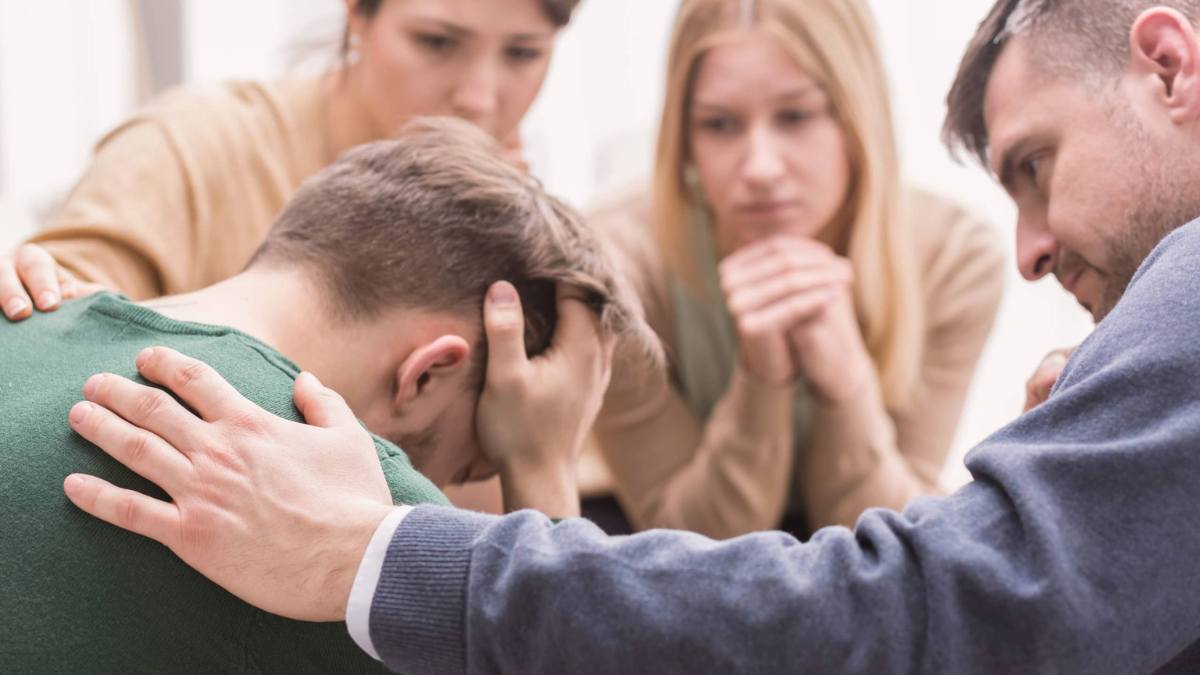How to Help Someone with Addiction
Watching a loved one battle with addiction is a deeply emotional and complex experience. It’s a journey that doesn’t just affect the person struggling but also casts a wide net. Thereby, impacting friends, family, and anyone close to them. Understanding how to help someone with addiction is the first step in becoming a source of support and hope in their path to recovery.
The process of helping someone with addiction begins with recognizing that you can’t force change. Whereas, the willingness to seek help must come from them. However, by learning the right approaches and maintaining a supportive stance, you can significantly influence their decision to pursue sobriety.
Understanding Addiction
Helping someone struggling with addiction starts with an essential foundation—understanding what addiction truly is. A common mistake in approaching this challenge is viewing addiction through a lens of moral failure or simple choice. However, it’s crucial to recognize that addiction is a complex disorder, not a result of weak character or poor decision-making.
Substance addiction, also known as substance use disorder, is a complex condition characterized by compulsive drug or alcohol use despite harmful consequences. Addiction is considered a chronic brain disease because it involves changes in the brain’s structure and function, particularly in areas related to decision-making, impulse control, and reward processing.
Individuals with addiction often experience intense cravings for drugs or alcohol and have difficulty controlling their use. Even when they know the negative consequences it may bring to their health, relationships, work, and overall well-being. Addiction can profoundly impact various aspects of a person’s life, leading to social, legal, financial, and health problems.
The current substance use crisis continues to impact the country with 107,941 overdose deaths in 2022. A 2023 tracking poll conducted by KFF revealed two-thirds of the adults polled said they had been affected by addiction, either personally or by a family member.
To better understand how to help someone with addiction, several factors contribute to the development of alcohol and drug use, including:
Biological Factors
Genetics plays a significant role in addiction susceptibility. Certain genetic variations can increase an individual’s risk of developing addiction. Additionally, factors such as imbalances in brain chemistry, neurotransmitter function, and changes in brain structure can influence vulnerability to addiction.
Psychological Factors
Co-occurring mental health disorders, such as depression, anxiety, trauma-related disorders, or personality disorders, can contribute to addiction. Some individuals may use drugs or alcohol as a way to self-medicate to alleviate symptoms of these underlying mental health issues.
Environmental Factors
Environmental influences, such as exposure to substance use within the family, peer pressure, trauma, stress, socioeconomic status, and availability of drugs or alcohol, can contribute to the initiation and continuation of substance use.
Developmental Factors
The age at which substance use begins can affect the risk of addiction. Early initiation of drug or alcohol use during adolescence, when the brain is still developing, can increase the likelihood of addiction later in life.
Social Factors
Social and cultural norms regarding substance use can influence patterns of alcohol and drug use. Additionally, social isolation, dysfunctional family dynamics, and lack of social support can contribute to the development and maintenance of addiction.
Treatment for drug and alcohol addiction typically involves a combination of approaches. These may include detoxification (if necessary), behavioral therapies, counseling, medication-assisted treatment (when appropriate), support groups, and ongoing support to address the physical, psychological, and social aspects of addiction.
It’s essential for individuals struggling with addiction to seek professional help and support from healthcare providers, addiction specialists, and support networks to begin their journey toward recovery.

How to Help Someone With Addiction
Helping a loved one with addiction through recovery can be both challenging and rewarding. There are difficulties but also many opportunities for profound growth and healing. For those seeking ways to help, you can make a significant difference. Here are 10 essential strategies for effectively helping someone struggling with addiction.
1. Educate Yourself About Addiction
Before one can effectively assist their loved one, gaining a solid understanding of addiction is crucial. Research shows that addiction alters brain chemistry, affecting a person’s ability to make decisions and leading to compulsive behavior surrounding substance use.
Gather information from trusted medical sites and addiction specialists to become well-versed in the symptoms, triggers, and treatments available. Knowledge about the nature of addiction will empower you both.
2. Identify the Signs
Knowing the signs of addiction can help in addressing the problem early. Addiction often hides in plain sight, with behavioral changes being the most telling. Look for shifts in social activities, neglect of responsibilities, financial issues, and changes in appearance or mood. These indicators can guide you when to intervene and offer help.
3. Practice Effective Communication
Once you notice signs, it’s vital to start a conversation. Approach them with empathy and without judgment. Use “I” statements to express your feelings and concerns. Ensure they understand you’re coming from a place of love and concern.
If you’re not sure how to help someone with addiction, remember that it all starts with a meaningful dialogue. And, when they’re ready to discuss their addiction, listen actively and without interruption.
4. Support, Don’t Enable
Learning the fine line between support and enabling is critical. Support means offering emotional and logistical help that leads them toward recovery. In contrast, enabling involves actions that might inadvertently perpetuate the addiction—for example, covering up for their actions or providing money that could be spent on substances.
5. Set Healthy Boundaries
Setting boundaries while helping a loved one with addiction is essential for your well-being and helps your loved one understand the consequences of their actions. Decide what behavior you will not tolerate and communicate these boundaries clearly and compassionately.
6. Stay Informed About Treatment Options
Different types of addiction require different treatment approaches. Stay informed about the various treatment options available, including inpatient and outpatient programs, therapy types, and aftercare support. Knowledge about these options can guide discussions about seeking professional help and making informed decisions together.
7. Encourage Professional Help
Convincing someone to seek professional help can be a delicate matter, but is often necessary for recovery. Discuss the benefits of obtaining treatment from addiction specialists, rehab and detox centers, or support groups who know how to help someone with addiction. Highlight the success stories and the positive aspects of seeking help to motivate them. Don’t try to force them.
8. Self-Care is Key
While pouring your energy into helping a loved one, it’s easy to neglect your own needs. Remember, self-care isn’t selfish. Staying mentally and physically healthy ensures you can provide the support they need for as long as it takes.
9. Join Support Groups
You’re not alone in this journey. Many have walked this path before. Join support groups for families and friends of those in addiction recovery. Sharing experiences and solutions can offer comfort and practical advice on how to help a loved one with addiction.
10. Embrace Patience and Persistence
Recovery is a marathon, not a sprint. It requires patience, persistence, and understanding that setbacks are part of the journey. Celebrate small victories and stay positive, even when progress seems slow.
Often, individuals battling addiction feel isolated and misunderstood. Communicating your support is paramount, making it clear that your love and assistance are unwavering. Let them know you’re there for every step toward recovery, from attending meetings together to simply listening during tough times.
By embracing these strategies with empathy, patience, and knowledge, you can make a positive difference in the life of someone battling addiction.

Safe and Effective Addiction Treatment at Enlightened Recovery
Understanding how to help someone with addiction is a journey that requires compassion, empathy, and a steadfast commitment to their well-being. By employing the strategies outlined at Enlightened Recovery, individuals can offer meaningful support that can significantly impact their loved one’s path to recovery. It’s about more than just addressing the addiction itself. It’s about rebuilding trust, fostering a supportive environment, and empowering them to take the necessary steps toward healing.
Remember, recovery is a process, and while challenges may arise, the support you provide can make all the difference in their journey to a healthier, substance-free life. Stay committed, stay informed, and above all, ensure your actions always come from a place of love and support.
Contact us for support and to learn more about our approach to addiction treatment.
Resources
Contact Us Today

We’re here to help you or your loved one with addiction.
Reach out to Enlightened Recovery today to learn more about our locations and services.